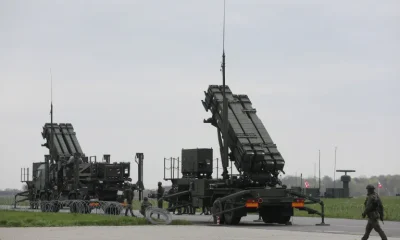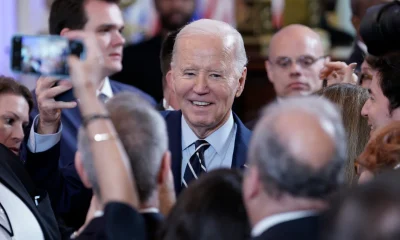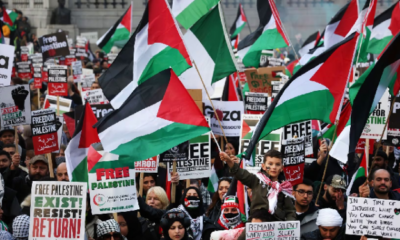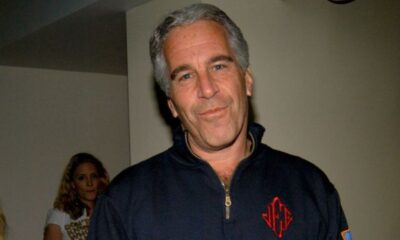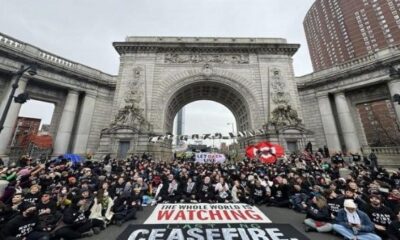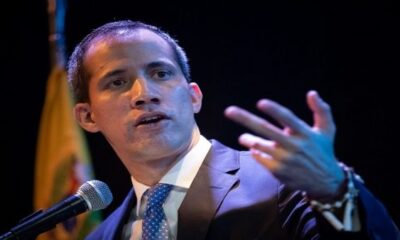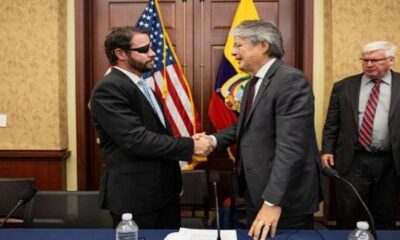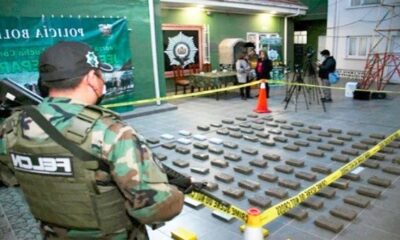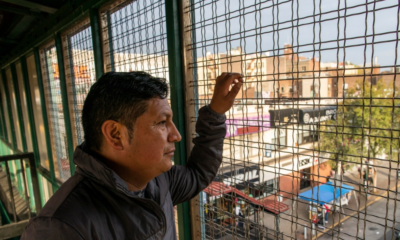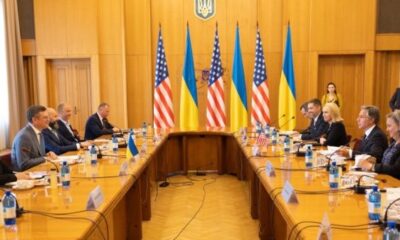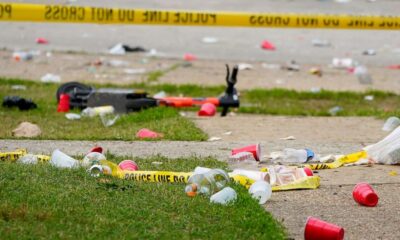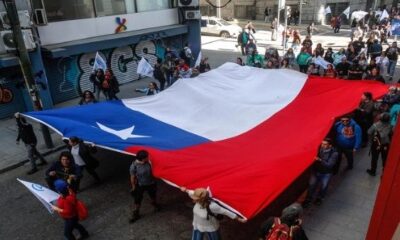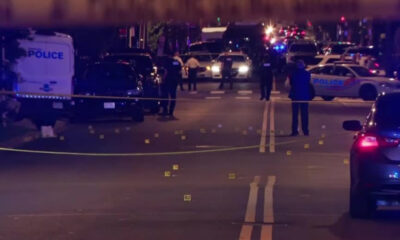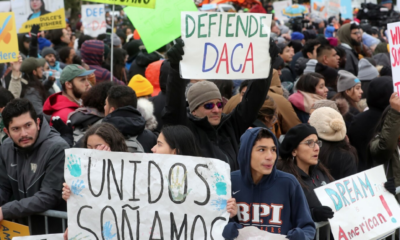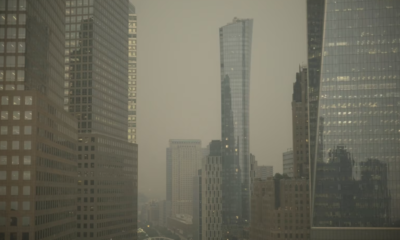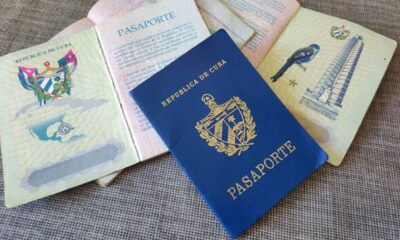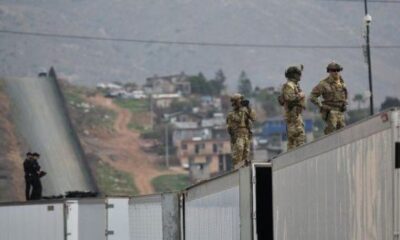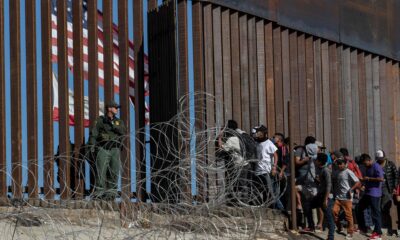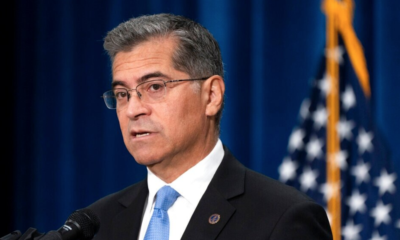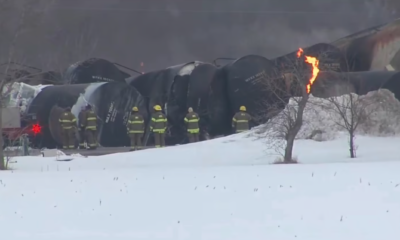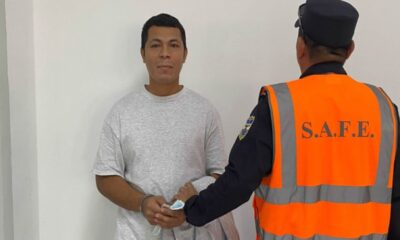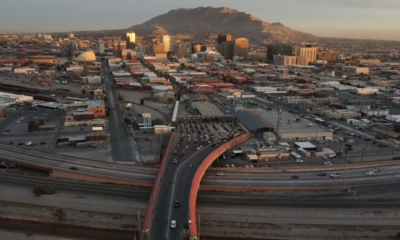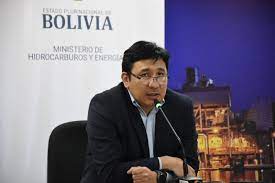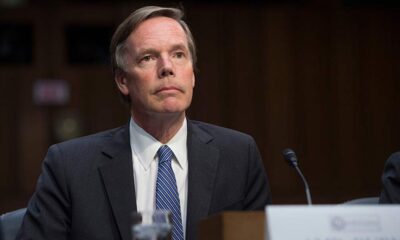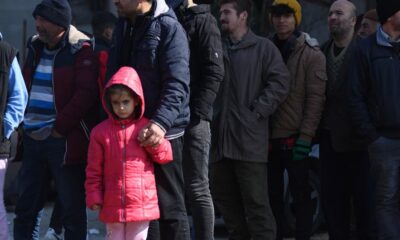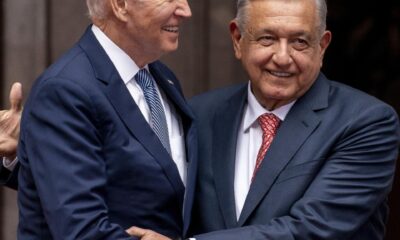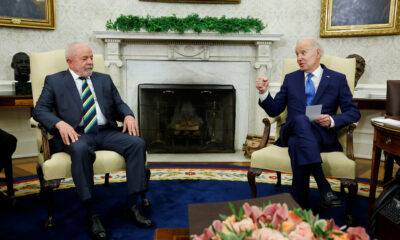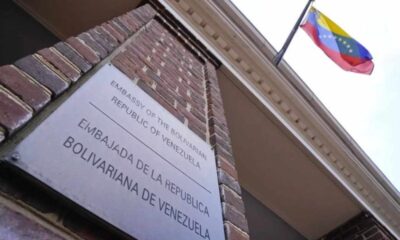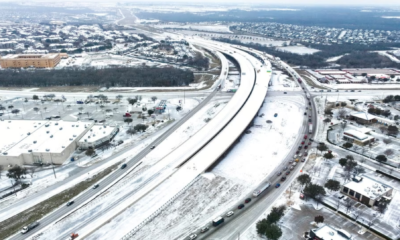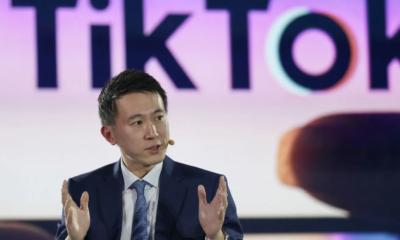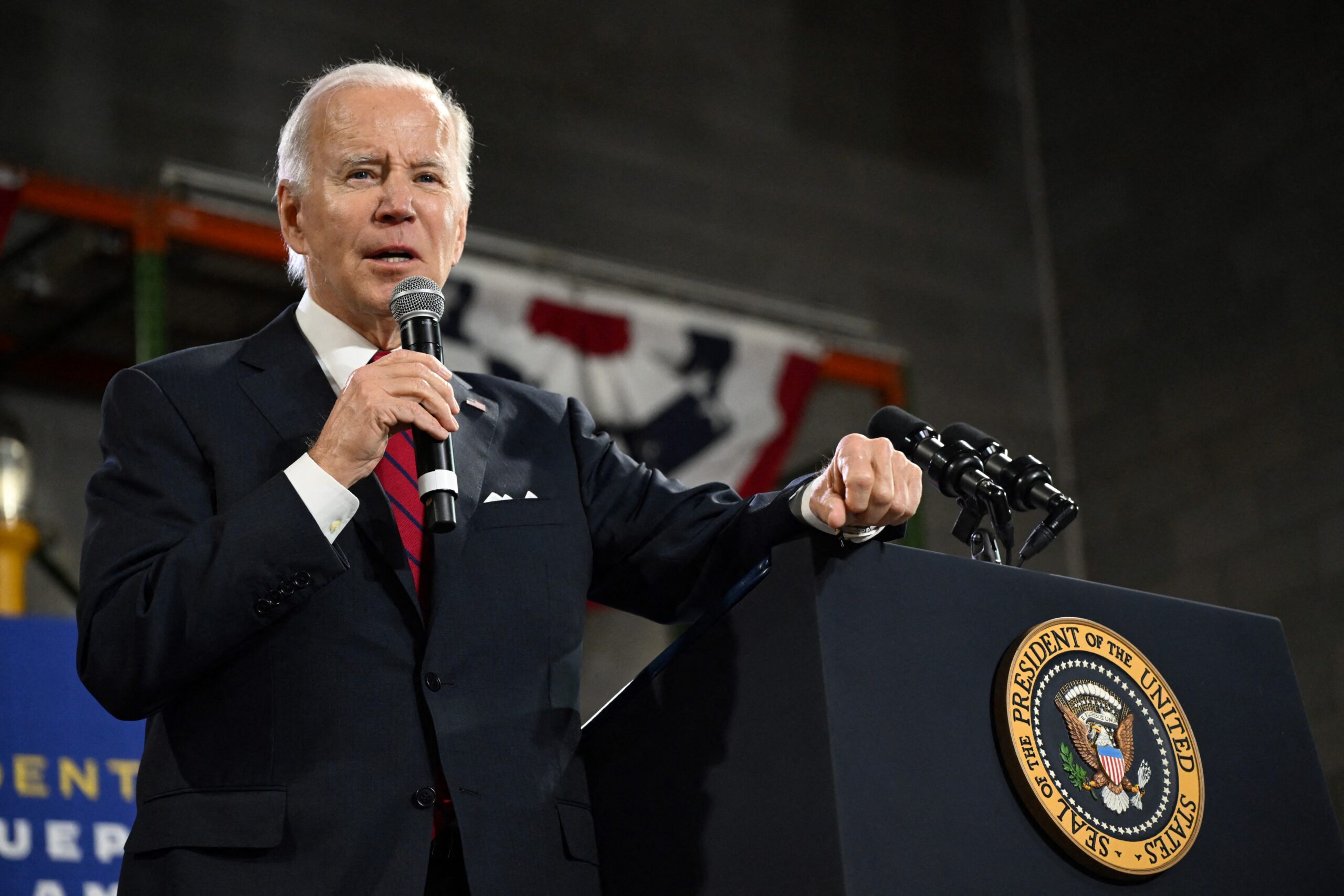International
U.S. officials discuss fentanyl and migration in Mexico
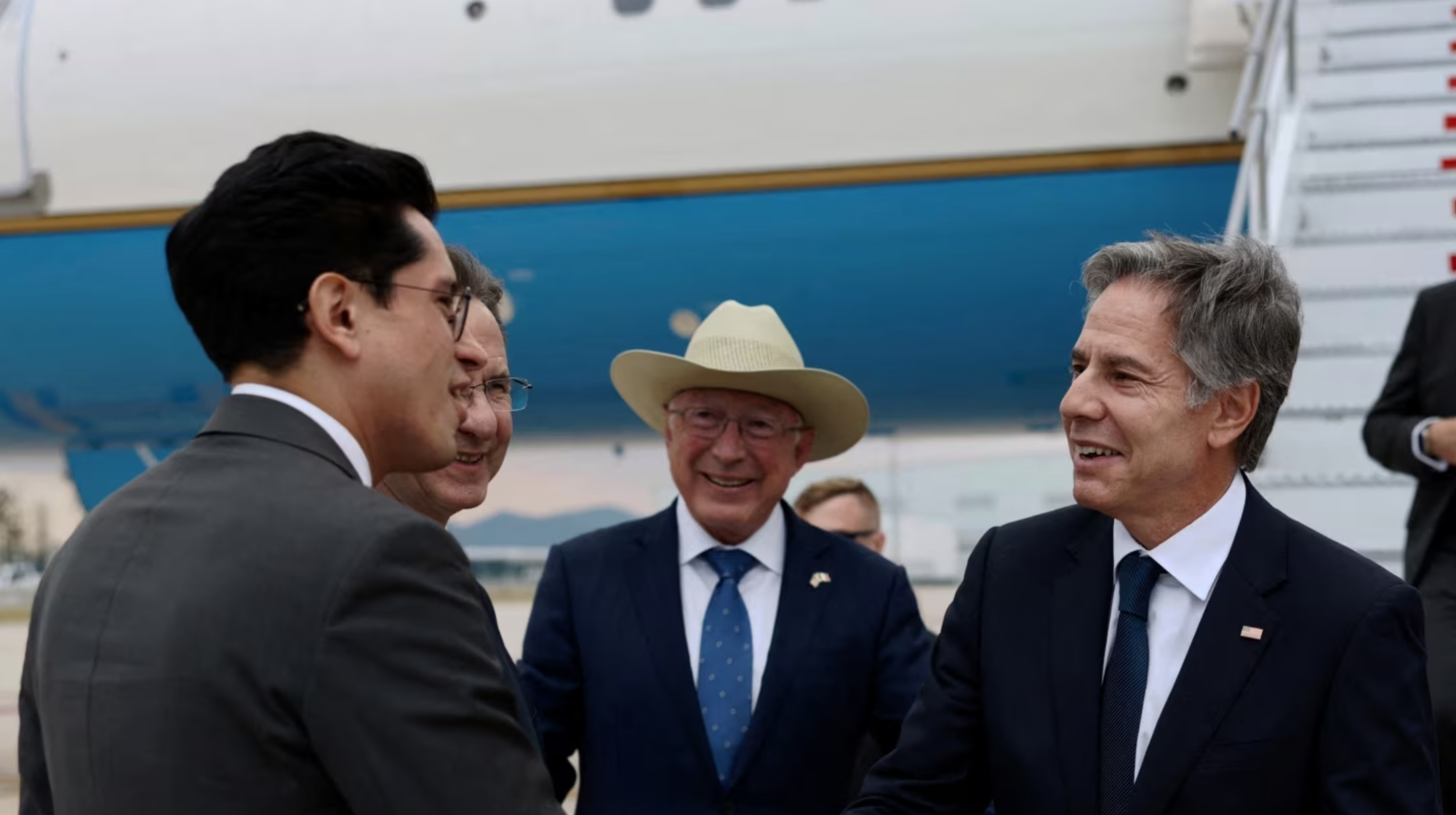
October 5 |
Senior U.S. officials, including Secretary of State Antony Blinken, were in Mexico on Wednesday for talks with Mexican officials on drug trafficking and a humanitarian crisis on the U.S. southern border.
Blinken will be joined by Attorney General Merrick B. Garland and Secretary of Homeland Security Alejandro Mayorkas. The U.S. delegation will meet with Mexican President Andres Manuel Lopez Obrador and Rosa Icela Rodriguez, Secretary of Security and Citizen Protection.
The meeting comes at a time of growing tension between the two nations. The United States is in the midst of an opioid addiction epidemic that claims more than 100,000 lives each year. Most of the deaths are attributable to fentanyl, a potent narcotic trafficked across the border by Mexico-based drug cartels.
At the same time, the southern border of the United States faces a daily flood of migrants, often in the thousands, who use Mexico as a jumping-off point for their efforts to enter the United States, either illegally or to seek asylum as refugees.
The dual problem has led some U.S. political leaders to call for aggressive action, with several Republican candidates for the presidential nomination advocating military intervention.
Fentanyl charges
In an indication of the global nature of the fentanyl problem, Garland held a press conference at the Justice Department on Tuesday and announced that charges had been filed against eight Chinese companies and 12 individuals for their role in selling fentanyl precursors – the chemical compounds. from which the drug is synthesized – to buyers in Mexico.
It was the second time since June that the United States has brought charges against Chinese companies supplying fentanyl precursors to criminal organizations in Mexico.
“We know who is responsible for poisoning the American people with fentanyl,” Garland said. “And we know that this global fentanyl supply chain, which ends in the deaths of Americans, often starts with chemical companies in China.”
As of August of this year, U.S. Customs and Border Protection has seized more than 25,500 pounds of fentanyl entering the U.S., nearly double the amount seized in the same period last year. The amount of fentanyl seized in the US has increased by 800% since 2019, according to the Department of Homeland Security, with most of it coming from Mexico.
Unlike other drugs, such as cocaine and marijuana, whose raw materials must be grown on acres of farmland, fentanyl labs are small and easy to hide. And because the drug is so potent (50 times more potent than heroin), it is also easier to transport.
In addition, the United States and Mexico are looking for ways to cooperate on the issue of human migration. In recent years, the flow of economic migrants and asylum seekers through Mexico to the U.S. border has become a flood.
After plummeting to fewer than 500,000 during the coronavirus pandemic in 2020, attempts to cross the southern border, whether legally or illegally, have skyrocketed in recent years. In 2021, U.S. Customs and Border Protection officials encountered 1.7 million people attempting to cross the southern land border. That number increased to 2.4 million in 2022, and the numbers for 2023 are on track to be even higher.
Mexican resistance
Among other actions, U.S. officials are expected to ask their Mexican counterparts to deploy more law enforcement personnel to interdict shipments of fentanyl precursors and shut down laboratories where the drug is produced.
The reception is likely to be cool. The Mexican government, including López Obrador, has openly criticized U.S. politicians who campaign on drug and immigration issues, accusing them of making their country a scapegoat for the United States’ own problem.
López Obrador has referred to the opioid epidemic in the United States as a result of “social decadence.”
International
Pope Leo XIV’s roots in Peru inspire hope for Amazon protection
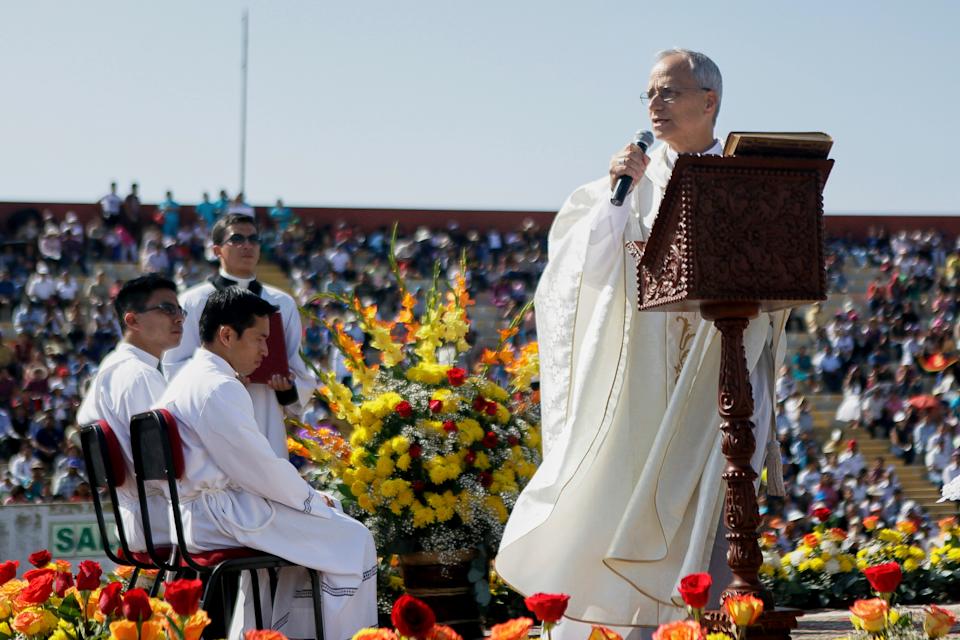
The bishop sat silently near the front row, hands clasped, as Indigenous leaders and Church workers spoke about the threats facing the forests of northern Peru, deep within the Amazon. It was 2016, one year after Laudato Si, Pope Francis’ encyclical on the environment.
When it was his turn to speak, the bishop didn’t preach—even though the gathering was taking place in his own city, Chiclayo, where he was hosting a regional meeting. Instead, he reflected on what he had witnessed.
“I believe it’s a very important encyclical,” he said. “It also marks a new step in the Church’s explicit expression of concern for all of creation.”
That bishop, Robert Prevost, is now Pope Leo XIV.
“He was always warm and approachable,” recalled Laura Vargas, secretary of the Interreligious Council of Peru, who helped organize the event, in a phone interview with The Associated Press.
“He had a strong interest in a socially engaged ministry, very close to the people. That’s why, when we proposed holding the event in his diocese, he welcomed it without hesitation,” she added.
Since then, Prevost has strengthened ties with environmental interfaith networks like the Interfaith Rainforest Initiative and Indigenous organizations such as AIDESEP, which place forest protection and rights at the heart of Church concerns.
These credentials have given hope to clergy and the faithful across the Amazon region—a vast area of 48 million people and 6.7 million square kilometers (2.6 million square miles) in South America. Many see Prevost, who was born in Chicago and spent nearly two decades in rural Peru, as a pope who will protect the region and stand up to climate change.
International
Pope Leo XIV blesses mexican faithful during Vatican appearance
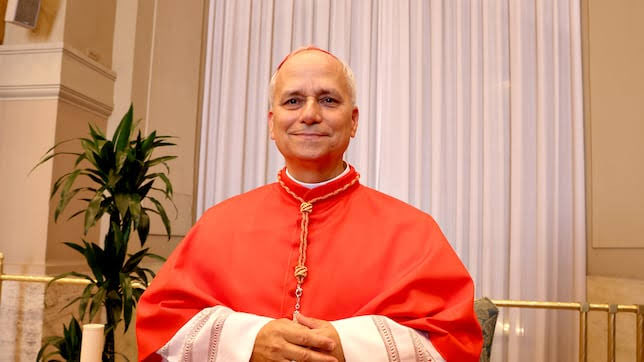
Following his appointment as the new leader of the Catholic Church, Pope Leo XIV offered his blessing to Mexican faithful and priests who had been waiting for him in the courtyard of the Palace of the Holy Office, just steps away from the entrance to the Vatican.
As he continued to shake hands with those present, someone exclaimed, “Greetings from Mexico!” To which Pope Leo XIV responded warmly, smiling and asking, “From Mexico?” A woman, kneeling to receive his blessing, confirmed: “All from Guadalajara.” The Pope reacted with pleasant surprise, exclaiming, “Ah, Guadalajara!”
Upon his arrival, the first American Pope—who also holds Peruvian nationality—blessed those awaiting him and even signed a Bible for a young girl.
International
Habeas Corpus at risk as Trump team eyes drastic border policy shift
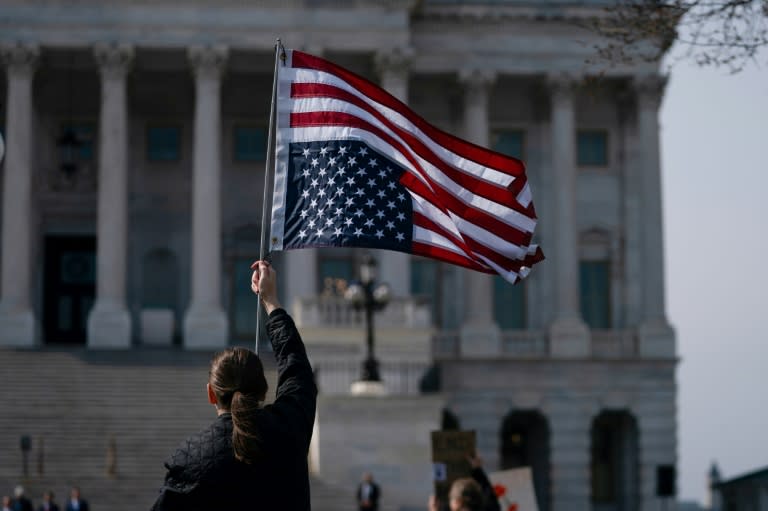
The White House is reportedly considering suspending habeas corpus, the legal principle that protects individuals against arbitrary detention, as part of its efforts to escalate anti-immigration measures in the United States.
In remarks to reporters, Stephen Miller, a senior advisor to President Donald Trump, argued that the U.S. Constitution allows the suspension of habeas corpus “in times of invasion.”
“It’s an option we are actively considering, and it all depends on whether the courts do the right thing or not,” Miller stated.
The Trump administration has frequently invoked the notion of a “migrant invasion” to justify actions such as the militarization of the U.S.-Mexico border and the deportation of foreign nationals—primarily Venezuelans—to El Salvador’s CECOT megaprison.
-
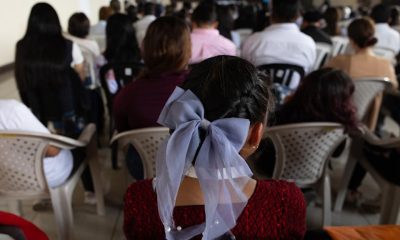
 Central America3 days ago
Central America3 days agoThousands of Guatemalan girls forced into motherhood due to sexual violence
-
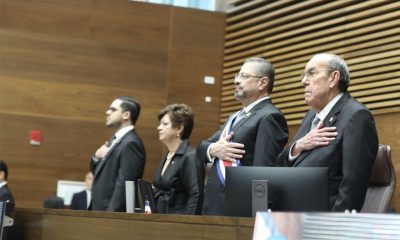
 Central America5 days ago
Central America5 days agoCosta Rica congressional leader warns of authoritarian drift under president Chaves
-
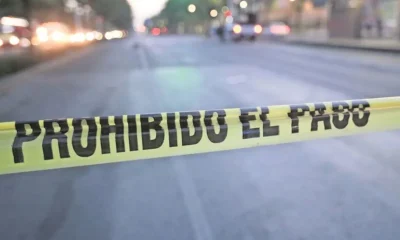
 International5 days ago
International5 days agoSinaloa Cartel faction leader ‘Chuy’ Guzmán Castro detained in Mexico amid rising violence
-

 International5 days ago
International5 days agoSpain approves plan to reduce workweek to 37.5 hours
-
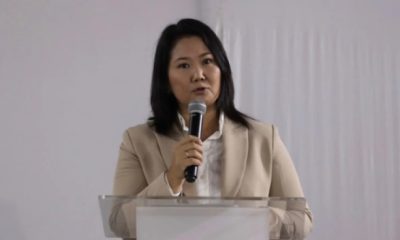
 International5 days ago
International5 days agoProsecutor José Domingo Pérez reinstated in Fujimori corruption case
-
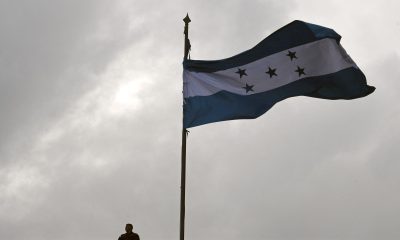
 Central America3 days ago
Central America3 days agoExperts urge action to protect democracy ahead of Honduras elections
-
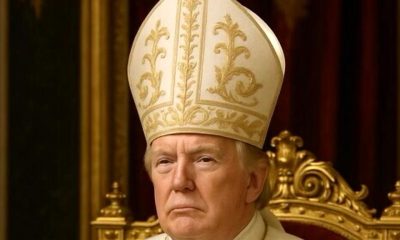
 International5 days ago
International5 days ago“Give me a break”: Trump defends AI image of himself as the Pope
-
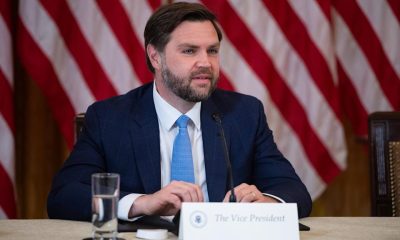
 International2 days ago
International2 days agoVP JD Vance to World Cup visitors: “Enjoy the game, then go home”
-
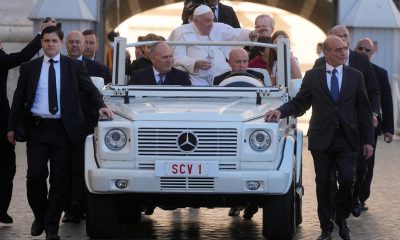
 Sin categoría5 days ago
Sin categoría5 days agoPope Francis donated Popemobile transformed into mobile clinic for Gaza’s children
-
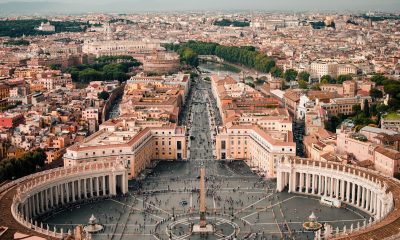
 International5 days ago
International5 days agoSins of the Vatican: Scandals, abuse, and a cardinal’s fall from grace
-

 International5 days ago
International5 days agoSheinbaum rejects U.S. military presence in Mexico’s war on drugs
-

 International2 days ago
International2 days agoBill Gates accuses Elon Musk of endangering the world’s poorest children
-

 International3 days ago
International3 days agoLong wait at the Vatican: experts defend lengthy papal election process
-
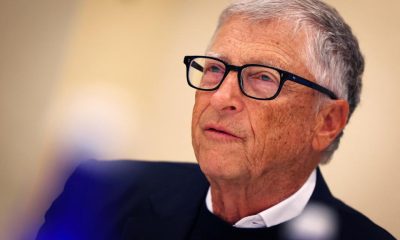
 International2 days ago
International2 days agoGates Foundation to close by 2045 as Bill Gates pledges to donate $200 Billion
-
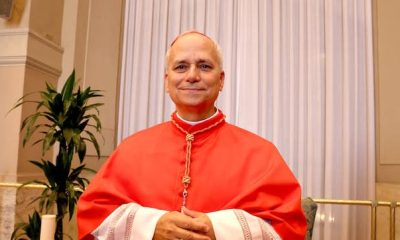
 Internacionales2 days ago
Internacionales2 days ago“A great honor for our country”: Trump congratulates Pope Leo XIV
-

 International3 days ago
International3 days agoXiomara Castro’s government vows to protect citizens amid threat reports
-
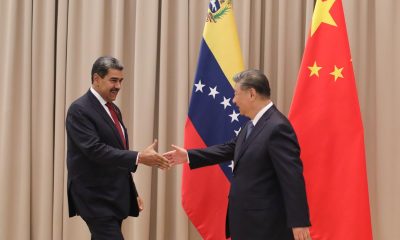
 International1 day ago
International1 day agoMaduro to Xi: Venezuela is a loyal friend to China
-
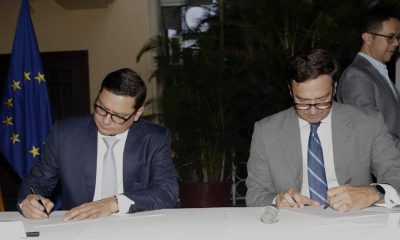
 International1 day ago
International1 day agoIberojet reaffirms commitment to Honduras as Central American Hub
-
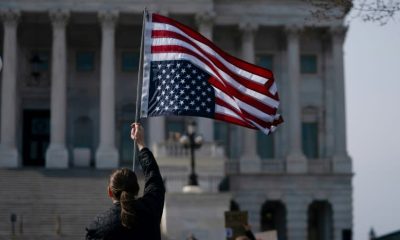
 International1 day ago
International1 day agoHabeas Corpus at risk as Trump team eyes drastic border policy shift
-
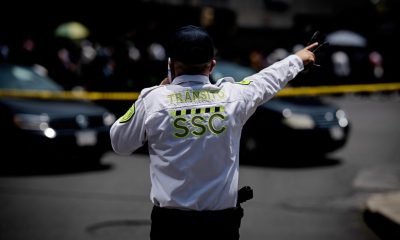
 International2 days ago
International2 days agoStrong winds cause stage collapse in Mexico City; seven hurt
-
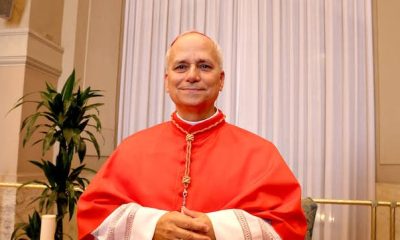
 International9 hours ago
International9 hours agoPope Leo XIV blesses mexican faithful during Vatican appearance
-
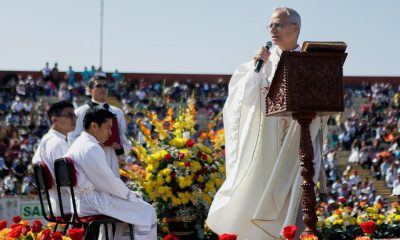
 International9 hours ago
International9 hours agoPope Leo XIV’s roots in Peru inspire hope for Amazon protection





















